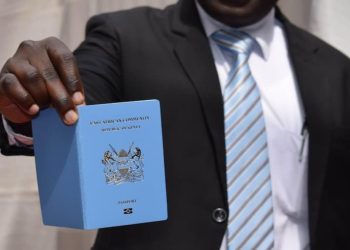People get the leaders they deserve as voters have the power to choose the kind of leaders they want

By KAZZ TAIYA
Barely a year after Kenyans lined up at polling stations to elect their leaders, the country has recorded a series of mega scandals, sparking debate about the integrity and management of public funds.
Reports by the Auditor-General Edward Ouko have always flagged numerous instances where billions of shillings of public funds have been misused by top leaders in county and national government.
Some of the recent scandals include the KSh9 billion procurement scandal at the National Youth Service (NYS) that saw 50 suspects charged in court including former chief executive Richard Ndubai and the ex-Youth Affairs Principal Secretary Lillian Omollo.
Corruption scandals have also hit electricity distributor Kenya Power – where families and friends of employees were found to have bagged multimillion-shilling contracts.
Other agencies affected are the Kenya Bureau of Standards (KEBS), the National Cereals and Produce Board (NCPB), the Kenya Pipeline Corporation (KPC), and the Youth Enterprise Development Fund.
A recent report by the Ethics and Anticorruption Commission shows that bribery, favoritism, nepotism and embezzlement of funds are the most prevalent forms of corruption in both the national and county governments.
The survey shows that there has been a remarkable increase in the number of reported cases of corruption from 3,355 cases in 2012/13 to 8,044 cases in 2016/17.
Leaders of integrity
As corruption assumes scary levels, the country does not seem to be coming with innovative and effective ways to tame the vice.
A latest survey by Transparency International (TI) showed that Kenya has made a dismal improvement in the fight against corruption. In the TI 2017 Global Perceptions Index, Kenya scored 28 points out of the possible 100, a slight improvement from 26 points in 2016 and 25 in 2015. However, the score is still lower than the combined average score for Africa, which is 32.
This focuses the spotlight on the leaders elected or appointed to various positions. If we had leaders of integrity, who meet the attributes stipulated in Chapter 6 of the Constitution, this country would have won the graft war long time ago.
Sound leadership is about management of resources by prioritizing projects that will go a long way in transforming the lives of its people. However, the devolved units have been on the spotlight over low allocation and absorption of development budgets.
Statistics by controller of budget office (CoB) indicate that during the first nine months of 2017/18, the 47 counties incurred 59 per cent of their total expenditure on remunerations, 27 per cent on maintenance while only 14 per cent was spent on development, raising concerns on their ability to deliver the core objectives of the devolved units.
Development expenditure refers to costs incurred to create assets that will provide long-term public goods, including roads, hospitals, schools and airports.
Kilifi, Murang’a and Mombasa had the highest absorption rate of development expenditure of 53.8 per cent, 52.1 per cent and 40.6 per cent, respectively.
Analysis of personnel emoluments as a percentage of total expenditure by county indicates that Kirinyaga, Meru and Elgeyo Marakwet recorded the highest percentage at 78.9 per cent, 75.3 per cent and 74.7 per cent respectively. According to the report, only a few counties were clear with the recommended ceiling for personnel emolument of 35 per cent.
A depressing situation
When it comes to ministries, the analysis of budget performance by CoB shows that the Department of Finance and Economic Planning and Executive Administration did not have an allocation on the development budget. The Department of Agriculture, Livestock and Fisheries and the Department of Health Services had the highest percentage of recurrent expenditure to recurrent budget at 73 per cent each, while the Department of Youth Affairs, Sports, Culture & Social Services had the lowest at 52.4 per cent.
The above scenario paints a depressing situation where our priorities are upside down. Only visionary leaders who have interests of the common man at heart, will turn the situation around.
It is said people get the leaders they deserve. This is true because voters have the power to choose the kind of leaders they want. Looking at the myriad of challenges that this country face, Kenyans must ask themselves if they wisely make electoral choices every five years.
Kazz Taiya is a Data Scientist and freelance journalist based in Nairobi. Email: kazztaiya@gmail.com















